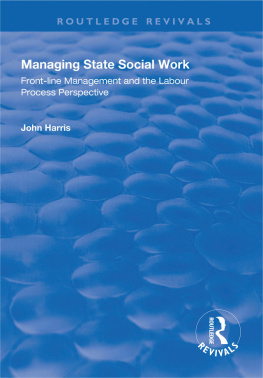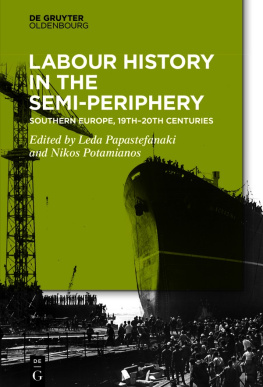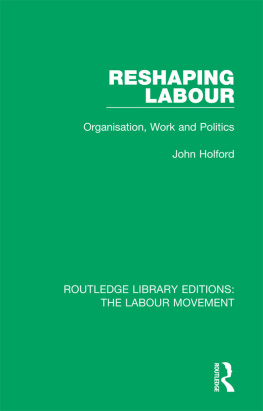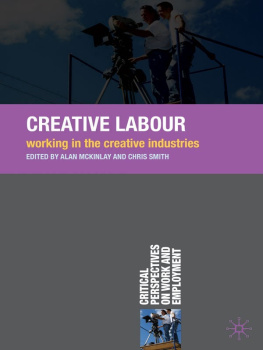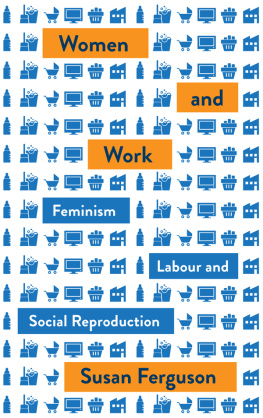Managing State Social Work
For Lydia , Seth and Vicky.
Managing State Social Work
Front-line management and the labour process perspective
John Harris
First published 1998 by Ashgate Publishing
Reissued 2018 by Routledge
2 Park Square, Milton Park, Abingdon, Oxon, OX14 4RN
711 Third Avenue, New York, NY 10017, USA
Routledge is an imprint of the Taylor & Francis Group, an informa business
Copyright J.Harris 1998
All rights reserved. No part of this book may be reprinted or reproduced or utilised in any form or by any electronic, mechanical, or other means, now known or hereafter invented, including photocopying and recording, or in any information storage or retrieval system, without permission in writing from the publishers.
Notice:
Product or corporate names may be trademarks or registered trademarks, and are used only for identification and explanation without intent to infringe.
Publisher's Note
The publisher has gone to great lengths to ensure the quality of this reprint but points out that some imperfections in the original copies may be apparent.
Disclaimer
The publisher has made every effort to trace copyright holders and welcomes correspondence from those they have been unable to contact.
A Library of Congress record exists under LC control number: 97078317
ISBN 13: 978-1-138-32569-2 (hbk)
ISBN 13: 978-0-429-45028-0 (ebk)
Thanks are due in no small measure to: Mick Carpenter for displaying fortitude and endurance in nudging me along; Norma Baldwin and Hilary Graham for interest, support and covering my job at crucial points; Marcie Edwards for turning work round cheerfully and efficiently; my parents, who have always wanted to know how it was going; Vicky, Seth and Lydia for wholeheartedly supporting my efforts "to get it finished" and putting up with me and everything I let slide in the process.
The relationship between management and social welfare has only recently attracted sustained and critical attention. This book traces one aspect of that relationship, the management of state social work. In doing so, the focus is on the social work labour process, with particular reference to front-line management.
After considering the orthodox industrial model of the labour process, developed by Braverman and utilised by radical social work writers, the book proposes a bureau-professional model as an alternative. This bureau-professional model is tested through a small-scale case study of a local authority Social Services Department.
On the basis of the case study's findings, the conclusion reached is that the labour process perspective has a role to play as a critical paradigm employed in the analysis of developments in state social work.
The relationship between management and social welfare has, somewhat belatedly, begun to attract sustained and critical attention (Pollitt 1990; Clarke et al 1994; Clarke and Newman 1997). This book tracks back the significance of the relationship between management and social work to the 1970s and early 1980s, the era in which 'management' entered the language of local authority social work. The focus is on the social work labour process, with particular reference to front-line management. The book's origins lie in the orthodox industrial model of the labour process developed by Braverman and utilised by adherents to the radical social work paradigm.
In the 1970s a loose-knit radical social work movement, containing a variety of Left hues (Clark and Asquith, 1975. pp. 105-106), pitted a socialist paradigm against the reformist social democratic paradigm which had dominated social work's development within the British post-war welfare state (Langan and Lee, 1989, p. 14; Langan, 1992, p. 2). Within the socialist paradigm, time-honoured social democratic assumptions were rejected as social work was scrutinised and recast. In an early contribution to this intellectual shift, Leonard analysed the wide-ranging nature of the change in approach which the socialist paradigm represented:
Conceptualisations about social work are primarily social products and reflect the particular socio-economic base upon which social welfare institutions have grown...It is because of the power of the dominant ideological formulations of social work, and their implications in practice, that it is important to develop radical perspectives on practice... The systematic formulation of the objectives and methods of radical practice is crucial. Such a formulation must distinguish clearly between the description of the present activities of social workers and the exploratory prescription of what activities might be undertaken by social workers within a radical paradigm (Leonard, 1975, p. 46).
The radical paradigm's demystification of existing social work, as envisaged by Leonard, was undertaken to a large extent by Marxist-influenced variants of sociology (Langan and Lee, 1989, p. 1; Langan, 1992, p. 2). In these variants of sociology, social work was attacked as a form of social control and located within the ideological functions of welfare in a capitalist state (Clarke 1979, pp. 125-126). As a consequence, the radical social work movement embraced class as the focal point of critical analysis (Hearn, 1982a, p. 22; Langan and Lee. 1989, pp. 9-10; Day, 1992, p, 12, p. 15; Langan, 1992, p. 2).
Although tensions existed between academics and practitioners within the radical social work paradigm, concerning the relationship between radical theory and radical forms of practice (Cohen, 1975; Clarke, 1979; Hearn, 1982a), the focus on social class ensured that tensions were less evident between academics and practitioners in the identification of social workers, first and foremost, as workers (Langan and Lee, 1989. p. 12). The underpinning of the radical paradigm by the theorists' analysis of social work as paid work was endorsed by the activism of practitioners in the work setting. Practitioners were enjoined to 'float like a butterfly and sting like a bee' in their employing organisations (Corrigan and Leonard, 1978, p. 157). The proof of practitioners' radical credentials lay in the manifestation of an anti-management stance (Clarke, 1979, p. 131), with their agencies being regarded as 'just as big a problem as external factors' (Langan and Lee. 1989, p. 5).
The theoretical resource for the analysis of developments in social work as a job, and for on-the-job. anti-management activism within Social Services Departments, was Braverman's Labor and Monopoly Capital (1974). Braverman's book made a marked impact on the radical social work movement in the 1970s and early 1980s. It became the cornerstone of critiques developed by radical theorists and by radical social work activists in the 'Seebohm factories' (Simpkin, 1983, p. 17), a term used in this period to describe local authority Social Services Departments. Following the book's publication, social work was represented within the radical social work paradigm as a labour process embedded in an industrial model of intensified managerial control (see the discussion in ). This became the analytical framework for understanding the labour process within and against which radical social work was to be created. Exploring the position of social workers, and the forces exerted to manage and control them, became an element of radical thought and action which was accorded at least as much importance as face-to-face work with service users. The issue of managerial control of social workers was seen as 'one of the key factors determining the nature of personal social services organisation and practice'(Jones, 1983, p. 131).

